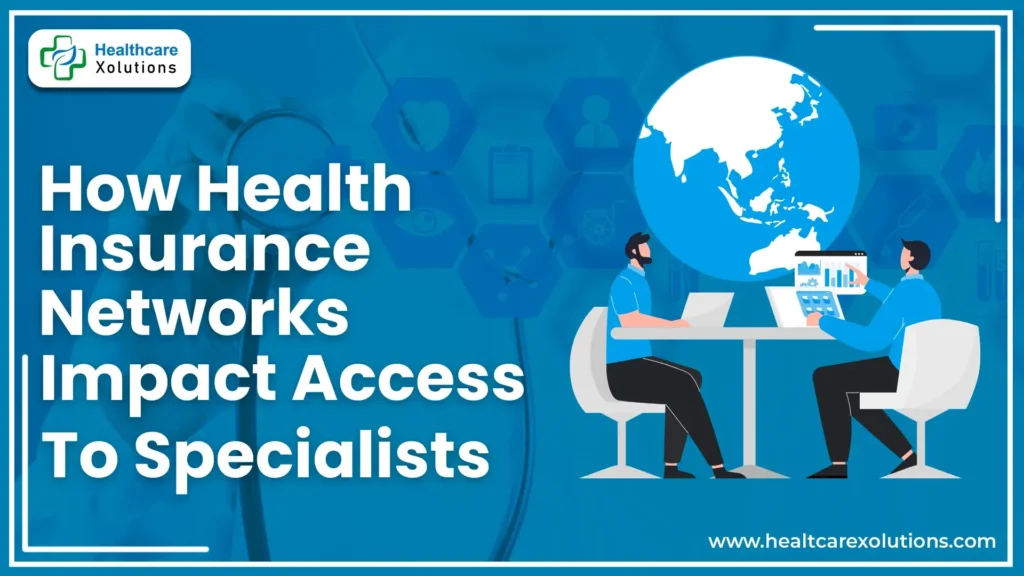How Health Insurance Networks Impact Access To Specialists?

Health insurance networks significantly influence how individuals access specialists and other healthcare services. When you enroll in a health insurance plan, you gain access to a specific network of providers, including doctors, hospitals, and specialists. These networks are contractual agreements between providers and insurers to offer care at discounted rates, ensuring quality while managing costs.
However, the network structure also impacts access, costs, and the quality of care. This guide explores how health insurance networks affect access to specialists and what strategies can help patients navigate these challenges.
Key Takeaways:
- Health insurance networks are groups of providers contracted to offer care at reduced rates.
- Access to specialists depends on network size, geographic location, and referral requirements.
- In-network care is more cost-effective, while out-of-network care involves higher expenses.
- Challenges include limited availability, network restrictions, and continuity of care issues.
- Strategies like telemedicine, out-of-network exceptions, and choosing the right plan can help.
Table of Contents
What Are Health Insurance Networks?
Health insurance networks are collections of providers who agree to offer services under specific terms set by the insurer. These networks vary across plans, impacting access and affordability of care.
Types of Health Insurance Plans:
- Health Maintenance Organization (HMO): Requires a primary care physician (PCP) referral and typically covers only in-network services, except in emergencies.
- Preferred Provider Organization (PPO): Offers flexibility to see specialists without referrals but covers out-of-network care at higher costs.
- Exclusive Provider Organization (EPO): Covers only in-network services, except emergencies, but offers lower premiums.
- Point of Service (POS): Combines HMO and PPO features, allowing out-of-network care at higher costs with a PCP referral.
How Health Insurance Networks Impact Access To Specialists?
- Availability of Specialists Within the Network: Network size directly affects access to specialists. Rural areas may lack sufficient in-network specialists, while urban areas may face long wait times due to high demand.
- Referral Requirements: HMO and POS plans require PCP referrals for specialist visits, potentially delaying care. PPO and EPO plans provide direct access but often at higher costs for out-of-network providers.
- Out-of-Network Coverage: PPO and POS plans allow access to out-of-network specialists, but patients face higher out-of-pocket expenses. Insurers cover a limited portion of these costs, increasing financial strain.
- Cost Considerations: Seeing in-network specialists reduces costs, including copays, deductibles, and coinsurance. Out-of-network care often leads to higher expenses, causing some patients to delay or forgo necessary specialist visits.
- Quality of Care: The quality of in-network specialists can vary. Insurers vet providers, but not all offer the same expertise or satisfaction rates. Patients may struggle with subpar care if they are restricted to certain networks.
- Continuity of Care: Network changes and limitations disrupt continuity of care, especially for chronic or complex conditions. Patients needing consistent treatment may face challenges maintaining relationships with trusted specialists.
Strategies For Improving Access To Specialists
- Requesting Out-of-Network Exceptions: Patients can appeal for out-of-network care if no suitable in-network specialist is available. Understanding this option can ensure timely access to required expertise.
- Telemedicine and Virtual Care: Telemedicine offers access to specialists remotely, reducing the need for in-person visits. This is particularly helpful for rural or underserved areas.
- Choosing the Right Plan: Evaluate plans based on network size, coverage, and your healthcare needs. PPOs offer flexibility but may come with higher premiums.
- Navigating Referrals Effectively: For HMO plans, working closely with your PCP to secure timely referrals ensures minimal delays in accessing specialist care.
Conclusion:
Health insurance networks are pivotal in determining access to specialist care. Factors like network size, referral requirements, and cost considerations shape the healthcare experience. While challenges exist, understanding your plan and using resources like telemedicine or out-of-network exceptions can help you navigate these complexities. By selecting the right plan and advocating for your needs, you can ensure timely and effective specialist care.
FAQs:
Can I see a specialist outside my insurance network?
Yes, but costs are higher. PPO and EPO plans offer more flexibility for out-of-network care, while HMO plans typically do not.
How can I access a specialist if there are none in my area?
Request out-of-network exceptions or use telemedicine services to consult with specialists remotely.
Why are out-of-network specialists more expensive?
Out-of-network specialists charge higher rates, and insurers cover a smaller portion, leaving patients with higher out-of-pocket costs.
How can I ensure continuous care with my specialist?
Choose a plan with a stable network and work with your insurer to maintain access to your current specialist.
